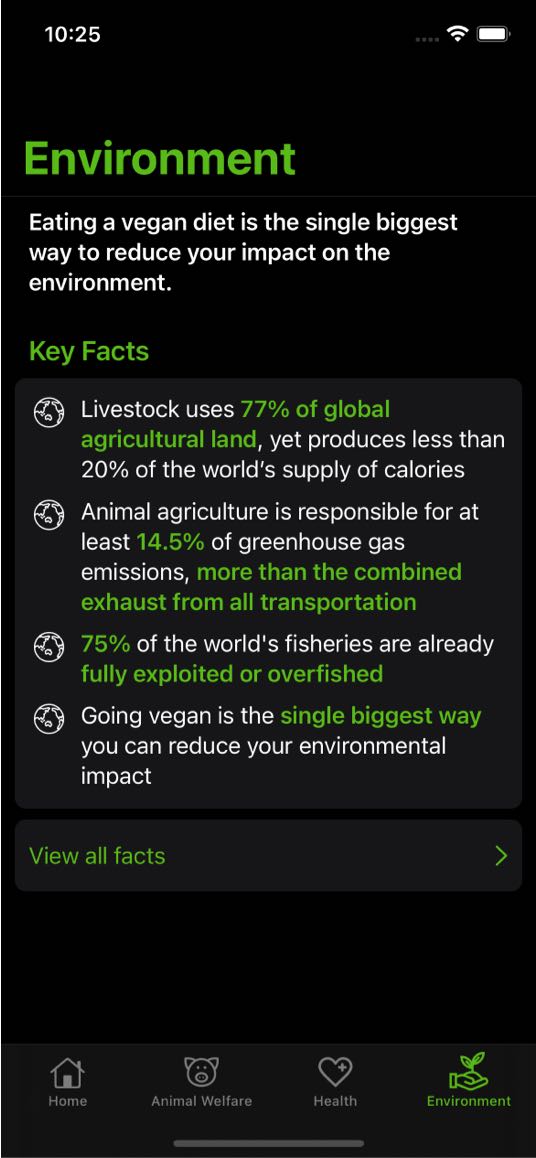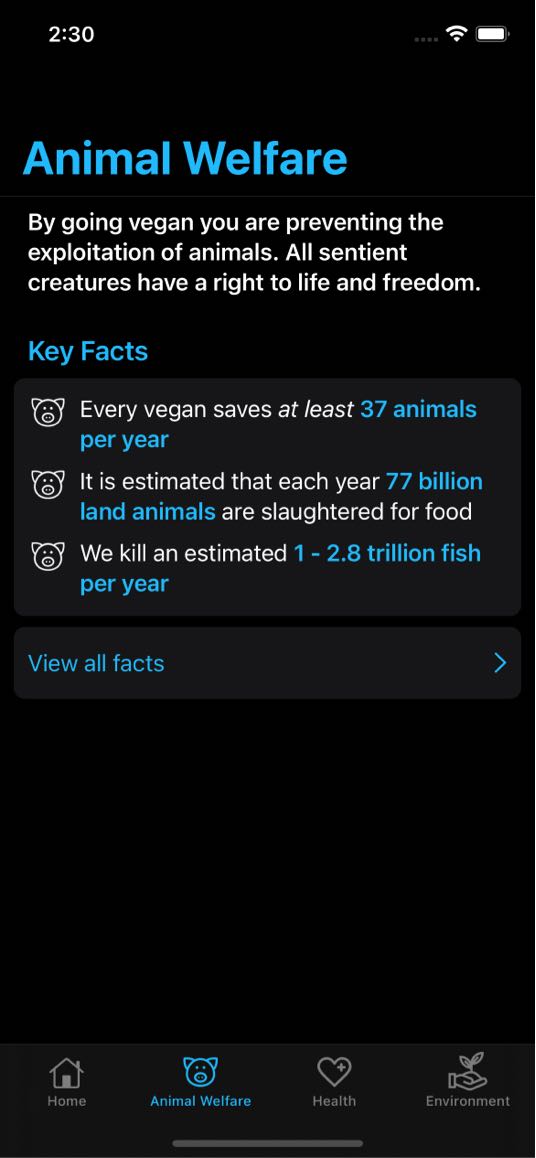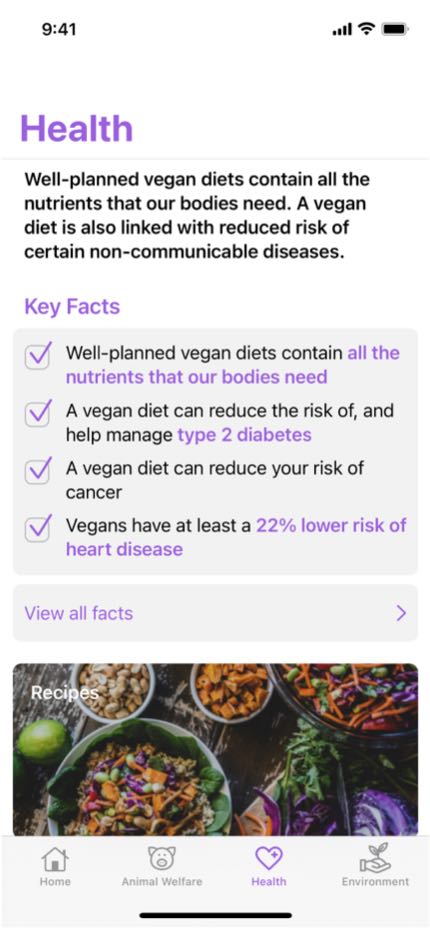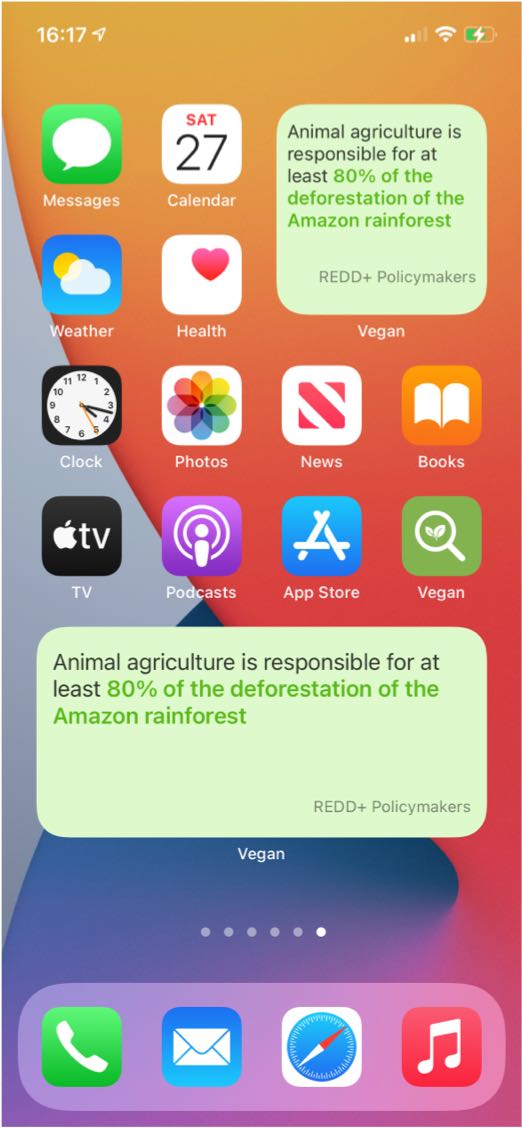Dark Mode






































Search through facts by category or keywords to instantly find what you need.
Animal agriculture is responsible for at least 14.5% of greenhouse gas emissions, more than the combined exhaust from all transportation
Livestock is responsible for 65% of all human-related emissions of nitrous oxide – a greenhouse gas with 296 times the global warming potential of carbon dioxide, and which stays in the atmosphere for 150 years
The water consumption of animal agriculture in the US ranges from 34 trillion gallons annually
Agriculture is responsible for 70-90% of US water consumption
Growing feed crops for livestock consumes 56% of water in the US
2,500 gallons (940 liters) of water are needed to produce 1 pound (450g) of beef. That's more water than is used for 150 showers
Every vegan saves at least 37 animals per year
It is estimated that each year 80 billion land animals are slaughtered for food
We kill an estimated 1 - 2.8 trillion fish per year
We kill an estimated 1 - 2.8 trillion fish per year
Well-planned vegan diets contain all the nutrients that our bodies need
A vegan diet can reduce the risk of, and help manage type 2 diabetes
A vegan diet can reduce your risk of cancer
Soy milk has roughly the same amount of protein as cow’s milk
Vegans have at least a 22% lower risk of heart disease
Going vegan is the single biggest way you can reduce your environmental impact
Livestock uses 77% of global agricultural land, yet produces less than 20% of the world’s supply of calories
A plant-based diet requires only one-third of the land needed to support a meat and dairy diet
26% of the Planet’s ice-free land is used for livestock grazing
Animal agriculture takes up 77% of global agricultural land but only provides around 33-35% of the protein consumed in human diets
Animal agriculture takes up 77% of global agricultural land but only provides around 33-35% of the protein consumed in human diets
You can produce 15x more protein on a given area of land with plants, rather than cows
Vitamin B₁₂ is produced in nature by certain bacteria and archaea
Farmed animals are given B₁₂ supplements
Vitamin B₁₂ supplements are recommended for both Vegans and meat-eaters
Phytoestrogens from soy don’t affect humans in the same way as real estrogen
75% of the world's fisheries are already fully exploited or overfished
Increased consumption of dairy is not associated with a lower risk of bone fractures
Methane has a global warming potential 86 times that of CO₂ on a 20-year time frame
Animal agriculture is responsible for at least 80% of the deforestation of the Amazon rainforest


















I started eating raw and vegan for health reasons.

I don’t see why someone should lose their life just so you can have a snack.

It takes nothing away from a human to be kind to an animal.

Three times a day, I remind myself that I value life and do not want to cause pain to or kill other living beings. That is why I eat the way I do.

Shifting from animal protein to vegetable protein is one of the most powerful measures someone can take to reduce their impact on our climate.

Someone asked me, ‘How could you get as strong as an ox without eating any meat?’ And my answer was, ‘Have you ever seen an ox eat meat?‘
